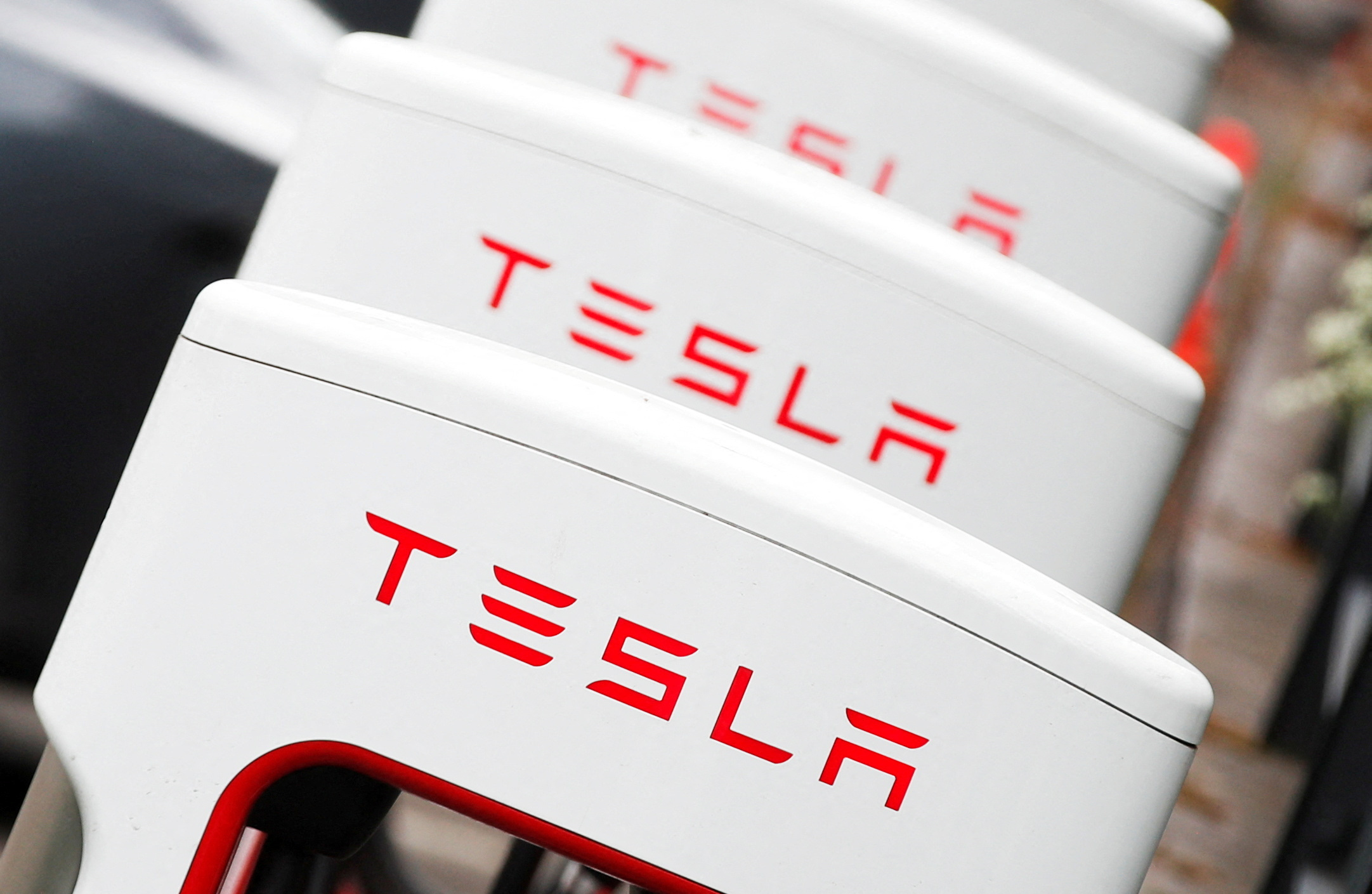
The logo of car manufacturer Tesla is seen at a dealership in London, Britain on May 14, 2021. REUTERS/Matthew Childs/File Photo Get license rights
Sept 11 (Reuters) – Tesla’s ( TSLA.O ) adoption of the Dojo supercomputer, robotaxis and its software services could add $600 billion to the automaker’s market value, Morgan Stanley analysts said.
The electric-vehicle (EV) maker in July began production of a supercomputer used to train artificial intelligence (AI) models for self-driving cars and plans to spend more than $1 billion on the dojo through next year.
Dojo could open up new addressable markets that could “extend beyond selling vehicles at a fixed price,” Morgan Stanley analysts led by Adam Jonas said in a note on Sunday.
“If Dojo could help cars ‘see’ and ‘react’, what other markets could open up? Think of any device at the edge with a camera that makes real-time decisions based on its field of view.”
The Wall Street brokerage upgraded its recommendation on Tesla’s stock to “overweight” from “equal weight” and replaced Ferrari’s US-listed stock as its “top pick”.
Tesla shares rose nearly 5.7% to $262.63 in premarket trading.
Morgan Stanley raised its 12-18 month target on Tesla shares by 60% to $400 — the highest among Wall Street brokerages, according to LSEG data — estimating it would give the EV maker a market capitalization of about $1.39 trillion.
After the stock closed at $248.5 on Friday, that compares with a current market value of about $789 billion.
Jonas expects Dojo to place more value on software and services.
Morgan Stanley raised its revenue estimate from Tesla’s network services business to $335 billion in 2040, up from $157 billion previously.
Jonas expects the unit to account for more than 60% of Tesla’s core revenue by 2040, nearly doubling from 2030.
“This increase is largely driven by the growing opportunities we see in third-party fleet licensing, increased ARPU (average monthly revenue per user).”
Tesla’s 12-month forward price-to-earnings ratio of 57.9 is well ahead of US legacy automakers Ford ( FN ) at 6.31 and General Motors ( GM.N ) at 4.56.
Reporting by Roshan Abraham and Susan Mathew in Bangalore, additional reporting by Medha Singh; Editing by Savio D’Souza, Sherry Jacob-Phillips and Rashmi Eich
Our Standards: Thomson Reuters Trust Principles.
